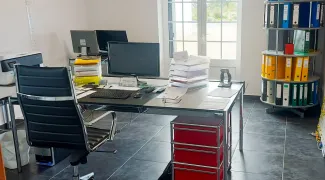The intention is viable, but it is important to understand, within the legislative framework, what possibilities Justin has for establishing legal residence in Portugal and clarifying its immigration status.
Without prejudice to the need to apply for a residence visa and obtain corresponding residence permit in Portugal, the truth is that if Justin sees the long-term resident status recognized in Italy, that is, in the country of legal residence within the EU, the application for granting a residence permit can be granted directly in Portugal.
For this possibility, we refer to the right of residence of the holder of long-term resident status in another Member State of the European Union, which can be exercised by “our” Justin, as a third-state national and with the said status recognized in Italy, provided that (i) presentation of an employment contract; (ii) presentation of a service provision contract, (iii) attend a study or professional training program or (iv) present a reasonable reason to take up residence in Portugal.
In fact, article 116 of Law no. 23/2007, of 4th of July, and other applicable regulatory legislation, indicates that, depending on the applicant’s specific circumstances, unequivocal proof of means of subsistence and accommodation in Portugal, along with other personal documentation, such as the criminal record certificate issued by the member state that granted long-term resident status, passport, health insurance and, of course, the Long-term Resident Title or certified copy thereof, must be submitted. The prior analysis of the card, for the purposes of the scope of the aforementioned article 116, is extremely important, as it will dictate the eligibility and possibility of submitting the request to AIMA (formerly SEF), without the need for prior granting of residence visa.
Let’s also imagine that Justin is married to another American citizen, and that they live with their two minor children, also American citizens, in Italy – in this case, the family can also benefit from the application of this immigration regime, as long as it is presented official documentation proving family ties and it is recognized that the family was already established in Italy. Justin must also provide proof of means of subsistence capable of covering the expenses of the entire household in Portugal.
In the event that the family is not established in Italy, the request for family reunification of all members is made in Portugal, in accordance with articles 98 et seq. of the Immigration Law.
Justin’s example, as a long-term resident, shows us that analysing the specific circumstances of each applicant and their subsumption and articulation with the different types of residence permits and corresponding migration statuses, is extremely important. In this way, extensive and tense immigration processes can be avoided, both for the applicant himself and for the competent official entities involved.
© Martinez Echevarria & Ferreira, Law Firm - Immigration Department




